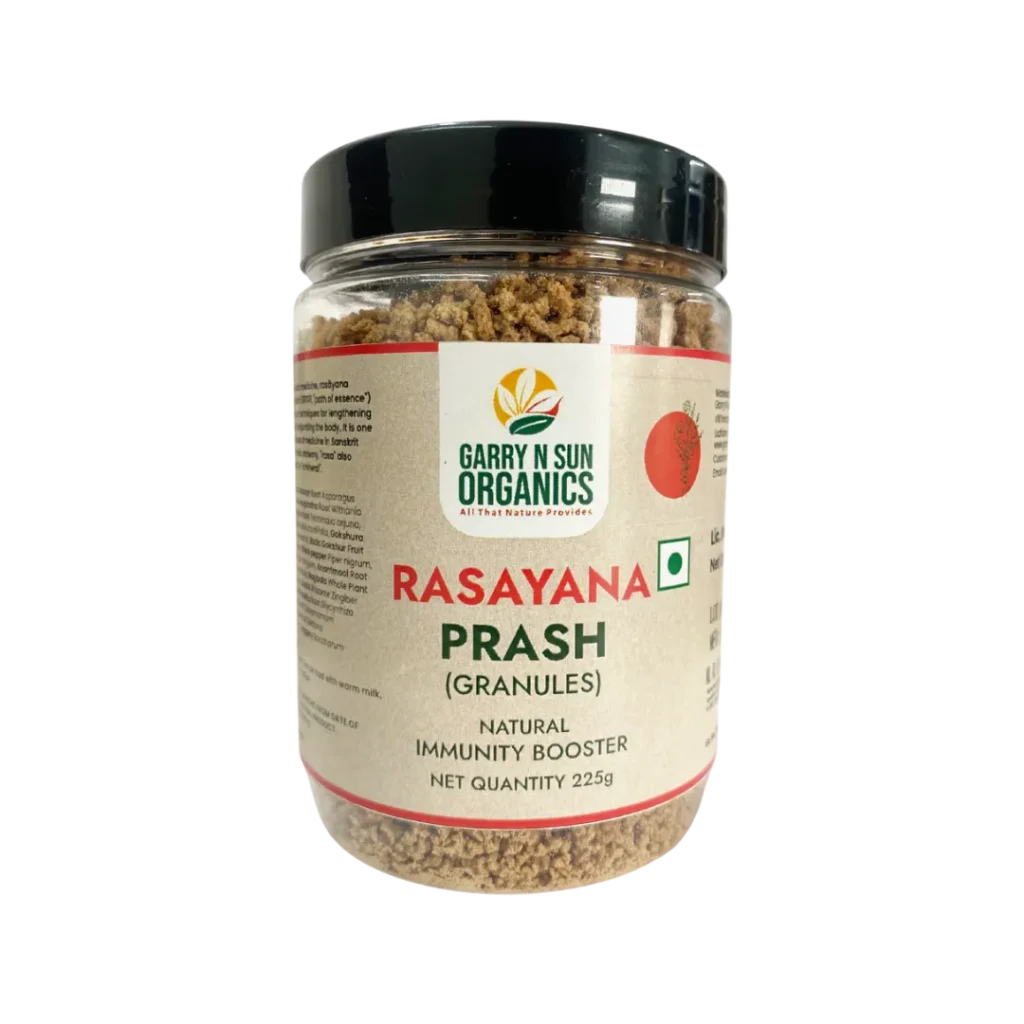Countless diets and exercise routines, yet the weight just won’t budge.
It’s a familiar story, isn’t it?
But take heart, you’re not alone. The struggle with weight management is a shared experience, and it’s perfectly normal to feel overwhelmed at times.
When it comes to managing weight, a one-size-fits-all approach rarely works.
What you need is a personalised plan that takes into account your unique body constitution.
Ayurveda, with its holistic approach, can direct you towards a healthier lifestyle and assist you in achieving and maintaining your ideal weight.
To know more, let’s read this blog post.
Heavy and Lightweight Drawbacks on Our Body
Imagine yourself having excessive weight. You might not feel anything at that time, but did you know obese people suffer from several health conditions like heart disease, diabetes, and joint problems? You might find it challenging to do everyday activities and experience low energy most of the time.
Conversely, underweight people face various health challenges, such as weakened immunity, nutrient deficiencies, and decreased muscle strength.
Therefore, weight management is paramount because anything in the extreme can harm one’s quality of life. So, let’s find a balanced approach to keeping your weight in check.
Causes of Unbalanced Weight
Whether it’s weight gain or weight loss, both indicate something is wrong with the body. Several factors can contribute to unbalanced weight. Understanding these reasons and taking steps towards achieving a healthy weight is crucial.
1.Poor Diet:
If you’re consuming sugars, processed foods, and unhealthy fats regularly, it can lead to weight gain. Conversely, not eating enough nutrient-dense foods can result in weight loss. So, track what you’re eating to understand the cause.
2. Sedentary Lifestyle:
Are you lazy and not much interested in physical activities? This can cause weight gain, as the body stores unused calories as fat. On the other hand, a stagnant lifestyle can also lead to muscle loss, contributing to a lower body weight.
3. Stress and Emotional Eating:
Job, studies, family, and whatnot! We live in a fast-moving world, and unfortunately, stress is everywhere. It can trigger overeating or undereating. Emotional eating often involves high-calorie comfort foods, while stress can also suppress appetite, leading to weight loss.
4. Hormonal Imbalances:
In addition to the conditions mentioned above, other conditions like hypothyroidism can slow metabolism and cause weight gain, while hyperthyroidism can speed up metabolism and lead to weight loss.
Are you sleeping well? If not, it’s important to understand that poor or insufficient sleep can disrupt hunger-regulating hormones, leading to overeating and weight gain. Prioritising good sleep is a crucial step in maintaining a healthy weight.
5. Medical Conditions:
Certain illnesses and medications can impact weight. For example, depression and gastrointestinal disorders can lead to weight loss, while some medications can cause weight gain.
Weight Management Herbs
Ayurveda emphasises the use of natural herbs to support weight management. Here are some powerful Ayurvedic herbs you must consider:
Guggul:
Benefits: Guggul is a resin obtained from the Commiphora mukul tree. It has cholesterol-lowering properties and promotes a healthy metabolism. Guggul helps to break down fat cells and eliminate toxins from the body.
Usage: You can take it as a supplement or as part of an herbal formula.
Triphala:
Benefits: Triphala is a combination of Amla (Indian Gooseberry), Bibhitaki, and Haritaki. It aids in digestion, detoxification, and weight loss. It cleanses your digestive tract, enhances nutrient absorption, and improves overall gut health. Impressive, right?
Usage: You can consume it in a powder form, mixed with warm water, or taken in capsule form.
Garcinia Cambogia:
Benefits: Garcinia Cambogia is a tropical fruit known for its appetite-suppressing properties. It has an active ingredient, hydroxy citric acid (HCA), which helps to prevent fat storage and control hunger. Garcinia Cambogia also boosts serotonin levels, which can help reduce emotional eating.
Usage: Garcinia Cambogia is often taken before meals to help reduce appetite and inhibit fat production.
Ashwagandha:
Benefits: Ashwagandha is an adaptogen. It means it helps the body adapt to stress. It lowers cortisol levels, balances hormones, and supports overall well-being. By managing stress and improving energy levels, Ashwagandha can aid in weight management.
Usage: Ashwagandha can be taken as a powder mixed with milk or water or in capsule form. If you use it regularly, it can help balance the body’s stress response and support healthy weight management.
Turmeric:
Benefits: Turmeric is also known as “Kitchen King.” It contains curcumin, an active compound with powerful anti-inflammatory and antioxidant properties. It supports digestion, enhances metabolism, and helps regulate blood sugar levels.
Usage: Turmeric can be added to meals as a spice, taken as a supplement, or consumed as a tea. It makes it more effective to combine turmeric with black pepper to improve curcumin absorption.
Ayurvedic Diet Plan for Managing Healthy Weight
Ayurveda recommends a balanced diet that tailors your body’s constitution or “dosha.” Let’s explore Ayurvedic dietary recommendations for both weight gain and weight loss.
Weight Gain

If you struggle with being underweight and want to gain weight, Ayurveda suggests focusing on nourishing, grounding foods that enhance your vitality. Here’s a sample Ayurvedic diet plan for healthy weight gain:
Breakfast: Start your day with a bowl of warm oatmeal cooked with whole milk and topped with nuts, seeds, and honey. Add a dash of ghee for extra nourishment.
Mid-Morning Snack: You can make a smoothie of ripe bananas, dates, and almond butter. Also, don’t forget to include a pinch of cardamom for flavour and digestion.
Lunch: For lunch, you must opt for a hearty meal of quinoa or rice with lentils, steamed vegetables, salad and yoghurt. Also, use cumin, coriander, and turmeric to aid digestion.
Evening Snack: If you have a slight craving in the evening, munch on a handful of mixed nuts and dried fruits. These provide healthy fats and essential nutrients.
Dinner: You can have a warm bowl of vegetable stew with root vegetables like sweet potatoes and carrots. You can have it with whole-grain bread or roti.
Before Bed: For peaceful sleep, drink warm milk with a pinch of saffron and nutmeg to promote sound sleep and muscle repair.
Weight Loss

For those aiming to shed excess kilos, Ayurveda recommends a diet that boosts metabolism and reduces toxins. Here’s a sample Ayurvedic diet plan for healthy weight loss:
Breakfast: Begin your day with a glass of warm water with lemon and honey to kickstart your metabolism. Follow with a bowl of fresh fruit or a light porridge made from millet.
Mid-Morning Snack: Around 11 am, you can sip on herbal tea, such as ginger or peppermint, which aids digestion and curbs appetite.
Lunch: For lunch, you must choose a substantial yet light meal of steamed vegetables, brown rice, and a small portion of lean protein
Afternoon Snack: For an afternoon snack, enjoy seasonal fruits, such as an apple or pear, to keep energy levels stable.
Dinner: Dinner should be light, so opt for an easily digestible meal like vegetable soup or a salad with colourful veggies. Always avoid heavy foods and eat late at night.
Before Bed: Drink warm herbal tea, such as chamomile or fennel, to aid digestion and promote relaxation.
Conclusion
Attaining a healthy weight is more than just a numerical goal; it’s about feeling your best and leading a vibrant life. Ayurveda, with its unique approach that takes into account your constitution and strives for a holistic balance of body, mind, and spirit, offers a path to sustainable weight management and overall wellness.
By integrating Ayurvedic principles, herbs, and a personalised diet plan, you can set a clear and effective journey towards a healthier you. Remember, the key to success is to live mindfully and consistently.













